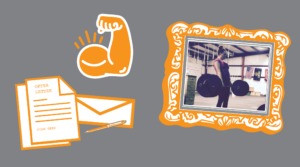 Picture the scene. It’s prom season at Brookdale High School. Emotions, hormones, Taylor Swift, and the faint scent of benzoyl peroxide permeate the air.
Picture the scene. It’s prom season at Brookdale High School. Emotions, hormones, Taylor Swift, and the faint scent of benzoyl peroxide permeate the air.
Brandy is a popular and pretty senior who is perceptively aware that she is both popular and pretty. She makes it clear to all of her friends, enemies, frenemies, and the entire social media universe that she is excited about prom…but does not yet have a date.
After sending out her social SOS, she eagerly awaits what will surely be multiple promposals.
The first invitation arrives during a crowded lunch from an underclassman named Randy. It involves a dozen roses and a Chat GPT-generated poem read aloud:
Oh Brandy, Brandy, can I be so bold?
Would you join me at prom, so our stories unfold?
You’re as hot as the sun, shining bright in the hall,
While I’m just a junior, standing so small.
But dreams are like stars, they twinkle in the night,
And I’m here, Randy, with my courage taking flight.
So let’s dance through the prom, like nobody’s there,
With you by my side, Brandy, I won’t have a care.
We’ll make memories, laugh, and have such great fun,
Just say yes, dear Brandy, and let this story be spun.
For a night to remember, with you in my sight,
Randy and Brandy, together, shining so bright!
Brandy giggles and flips her hair in the way only cheer captains can. She is flattered, but she isn’t about to commit. Randy lingers long enough for the awkward silence to set in and then walks away, hoping against hope.
The next invitation arrives two days later during study hall, replete with an oversized teddy bear wearing an “I COULDN’T BEAR PROM WITHOUT YOU” t-shirt and a note signed by a fellow named Andy. Again, Brandy is honored. But now is not a time for choosing. It’s a time to soak up the attention like a Mean Girl and see what else the prom market bears.
The third, fourth, and fifth invitations arrive via singing telegram, a balloon-filled locker, and a suitor dressed in a banana suit, respectively. At this point, Brookdale is abuzz with whispers. Who will Brandy choose?
Brandy doesn’t acknowledge or even respond to any of the promposals formally. When she passes her potential suitors in the hallway, she barely makes eye contact. They are pursuing her, after all, and she’ll make a decision when she’s damn good and ready (and when the promposals have slowed to a trickle and she has milked this prom season like the popularity cow it is).
Randy, Andy, and the entire Take Brandy to Prom Fan Club are left to wonder if they stand a chance.
Days pass. Then weeks. To the angsty admirers, it feels like an eternity or at least as long as the wait for the release of Stranger Things Season 5.
Finally, mere days before prom, Brandy accepts the invitation from the guy in the banana suit. (I guess he a-peeled to her. HA!)
Sadly, Randy, Andy, and the rest of the also-rans never hear back from Brandy. Not a word. Not a text. Not a call. Not a peep. No thank you for the singing telegram, balloons, oversized teddy bear, roses, or painfully cheesy ChatGPT poem.
Sad times at Brookdale High.
This doesn’t make you think very highly of the beloved Brandy, does it?
Well, what would you say if I told you that hiring managers sometimes treat candidates the way Brandy treats her suitors?
I don’t think hiring managers are intentionally being dismissive like Brandy. Rather, they just aren’t thinking about how each job application is very much like a promposal: it’s personal! (Even if it doesn’t involve an oversized stuffed mammal or a fruit suit.)
 Talent Market’s Secret Weapon Award celebrates a free-market nonprofit staff member who adds tremendous value to his/her organization and the liberty movement from behind the scenes. We developed this award not only recognize the secret weapons among us, but also to remind everyone how critical these individuals are to our movement.
Talent Market’s Secret Weapon Award celebrates a free-market nonprofit staff member who adds tremendous value to his/her organization and the liberty movement from behind the scenes. We developed this award not only recognize the secret weapons among us, but also to remind everyone how critical these individuals are to our movement. Ryan has been with CEI for nearly 15 years. When the rest of the CEI staff is sleeping, Ryan is updating its network and servers. When everyone else is going home for the day, Ryan is applying updates to programs & tools that CEI can’t function without.
Ryan has been with CEI for nearly 15 years. When the rest of the CEI staff is sleeping, Ryan is updating its network and servers. When everyone else is going home for the day, Ryan is applying updates to programs & tools that CEI can’t function without. Talent Market’s Program of the Year Award celebrates a program that develops free-market talent. We specifically wanted to recognize a program that has a solid curriculum, evidence of short and long-term impact, and impressive alumni who are making a difference by advancing liberty.
Talent Market’s Program of the Year Award celebrates a program that develops free-market talent. We specifically wanted to recognize a program that has a solid curriculum, evidence of short and long-term impact, and impressive alumni who are making a difference by advancing liberty.











